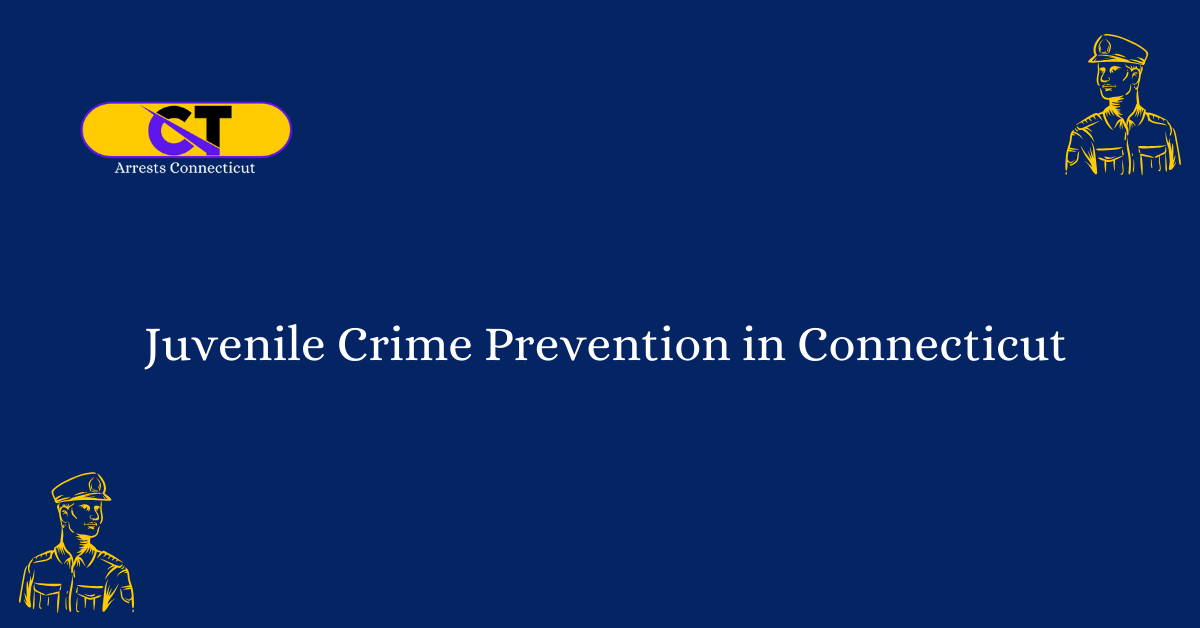Juvenile Crime Prevention in Connecticut
Crime prevention is a critical issue that affects communities across the nation. In the state of Connecticut, addressing juvenile crime has become a top priority for policymakers and law enforcement agencies alike. Recognizing the need for proactive measures, Connecticut has implemented a comprehensive approach to juvenile crime prevention that aims to not only reduce criminal activity but also provide support and guidance to at-risk youth.
Through collaboration between government agencies, community organizations, and educational institutions, Connecticut has developed innovative programs and initiatives that target the root causes of juvenile delinquency. By addressing issues such as poverty, substance abuse, and lack of educational opportunities, the state is working towards creating a safer and more prosperous future for its young population. With a strong emphasis on prevention rather than punishment, Connecticut’s approach to juvenile crime is grounded in evidence-based strategies that have proven to be effective in reducing recidivism rates and promoting positive youth development.
Building Strong Communities
One of the key components of Connecticut’s comprehensive approach to juvenile crime prevention is the focus on building strong communities. The state recognizes that creating safe and supportive environments is crucial in deterring young individuals from engaging in criminal activities. By fostering positive relationships between community members and providing access to resources, Connecticut aims to empower its residents and reduce the risk factors associated with juvenile delinquency.
Community Policing Initiatives
Connecticut has implemented various community policing initiatives to enhance trust and collaboration between law enforcement agencies and the communities they serve. Through programs such as neighborhood watch groups and community outreach events, police officers are able to establish meaningful connections with residents, gain valuable insights into local issues, and work together toward preventing crime. This proactive approach not only strengthens the bond between law enforcement and the community but also promotes a sense of security and belonging among young individuals.
Educational Opportunities for All
Recognizing the correlation between educational attainment and reduced criminal behavior, Connecticut has made it a priority to provide quality education to all its youth. The state has invested in improving schools in underserved areas, ensuring that every child has access to a high-quality education. By equipping young individuals with the necessary skills and knowledge, Connecticut aims to empower them to make positive choices and pursue successful futures.
Mentorship and Support Programs
Connecticut understands the importance of guidance and support in the lives of at-risk youth. The state has established mentorship programs that pair young individuals with caring and experienced adults who can provide guidance, advice, and positive role modeling. These programs not only offer a source of support but also help young individuals develop important life skills, boost self-esteem, and build resilience against negative influences.
Preventing Substance Abuse
Connecticut recognizes that substance abuse is a significant risk factor for juvenile delinquency. To address this issue, the state has implemented comprehensive substance abuse prevention programs in schools, community centers, and other youth-serving organizations. These programs educate young individuals about the dangers of substance abuse, promote healthy alternatives, and provide access to resources for those struggling with addiction. By tackling substance abuse at an early stage, Connecticut aims to prevent its youth from engaging in criminal activities associated with drug use.
Creating Opportunities for Employment
Connecticut understands that unemployment can contribute to delinquency among young individuals. To combat this, the state has focused on creating opportunities for employment and skill development. Through partnerships with local businesses, vocational training programs, and job placement initiatives, Connecticut seeks to provide young individuals with the tools and resources needed to secure stable employment. By offering viable alternatives and pathways to success, the state aims to reduce the likelihood of young individuals turning to crime due to limited opportunities.
Family Support Services
Connecticut recognizes the crucial role that families play in preventing juvenile delinquency. The state has invested in family support services that provide counseling, parenting classes, and other resources to families in need. By strengthening family bonds, improving parenting skills, and addressing underlying issues, Connecticut aims to create stable and supportive home environments that promote positive youth development.
FAQs
What is the current state of juvenile crime in Connecticut?
Crime prevention is a critical issue that affects communities across the nation. In the state of Connecticut, addressing juvenile crime has become a top priority for policymakers and law enforcement agencies alike. Recognizing the need for proactive measures, Connecticut has implemented a comprehensive approach to juvenile crime prevention that aims to not only reduce criminal activity but also provide support and guidance to at-risk youth.
What initiatives has Connecticut implemented to address juvenile crime?
Through collaboration between government agencies, community organizations, and educational institutions, Connecticut has developed innovative programs and initiatives that target the root causes of juvenile delinquency. By addressing issues such as poverty, substance abuse, and lack of educational opportunities, the state is working towards creating a safer and more prosperous future for its young population. With a strong emphasis on prevention rather than punishment, Connecticut’s approach to juvenile crime is grounded in evidence-based strategies that have proven to be effective in reducing recidivism rates and promoting positive youth development.
How does Connecticut’s approach differ from traditional punitive measures?
Unlike traditional punitive measures that focus solely on punishment, Connecticut’s approach to juvenile crime prevention recognizes the importance of addressing underlying issues that contribute to delinquency. By providing support and guidance to at-risk youth, the state aims to prevent them from entering the criminal justice system in the first place. This approach not only reduces recidivism rates but also promotes positive youth development and offers a chance for rehabilitation and reintegration into society.
What evidence-based strategies are used in the Connecticut approach?
Connecticut’s approach to juvenile crime prevention is grounded in evidence-based strategies that have been proven to be effective. These strategies include early intervention programs, community-based alternatives to incarceration, and educational initiatives that focus on skill-building and positive youth development. By addressing the root causes of delinquency and providing comprehensive support, Connecticut aims to break the cycle of crime and create a safer and more prosperous future for its youth.
What is the role of collaboration in the Connecticut approach?
Collaboration between government agencies, community organizations, and educational institutions is a key component of Connecticut’s approach to juvenile crime prevention. By working together, these stakeholders can leverage their resources and expertise to develop and implement effective programs and initiatives. This collaborative approach ensures that all aspects of juvenile crime prevention are addressed, from addressing social and economic factors to providing educational opportunities and support for at-risk youth.







